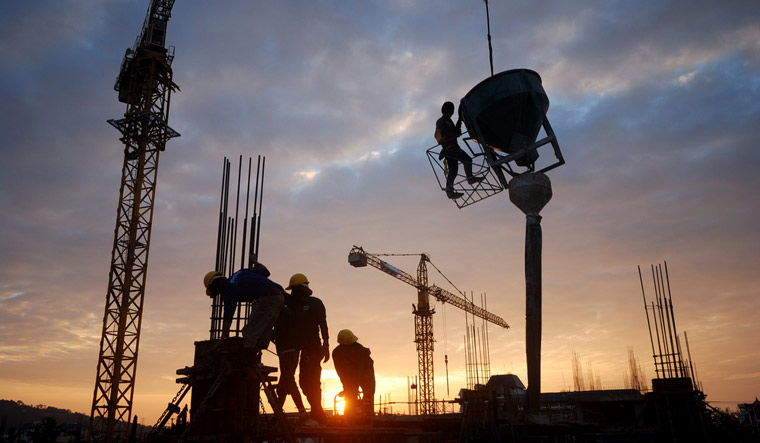“The panic started two weeks ago. It was not about falling sick, but about who would care for them if they fell sick”, says Arjun S Kumar, General Manager of a construction company in Kochi.
Of the approximately 500 workers the Yeskay Constructions employs, 100 left for their home states— mostly West Bengal and Odisha when that panic started to set in.
Despite the boom in the state’s construction sector—aided by some measure by the new norms for construction in coastal areas and rising incomes; the mental fragility of being alone with COVID-19 was too much to bear.
“I told them travelling home in an unreserved, general compartment was not a good idea’, says Kumar whose family-owned business was providing civil work services at four projects in Ernakulam and Thiruvalla before the lockdown.
Last Saturday, as the enormity of the situation, dawned on the company management, they asked workers to stock up on rations for a week. “They will not have the resources to stock anymore, so from this Saturday onwards we will be providing for them,” says Kumar. A portion of the company’s reserves have been set aside for this and once these are exhausted the family will dip into its resources.
The workers employed by the company stay in labour camps that it constructs within a one kilometre radius of a work site. Social distancing in these camps is impossible. And though health check-ups have been conducted and everyone seems fine for now-- the uncertainty is palpable. “After some time the stress of being away from home will become unbearable. We do not know how we will deal with that. There will be no way for us to help if a worker were to say, request help for something back in his native village”, says Kumar.
Every site has a manager looking after it and checking on the well being of the labourers for now. On Wednesday, the Kerala government announced that it would provide free ration to all ration card holders. But this safety net will not be available to these workers as they are migrants and the only form of state government identification they have is a police verification card.
Many among the 400 workers who have stayed behind, have worked several years with the company set up in 1988. They are entitled to compensation under the Workermen’s Compensation Act and can opt for Provident Fund and the Employees State Insurance Fund. For the range of skills employed in the company, the average income is between Rs 18,000 to Rs 30,000 a month. This has helped many workers steadily improve their economic condition back home and even purchase land. “Some of the have become seasonal worker-- returning home during the agricultural season”, says Kumar.
ALSO READ
- 335 fresh Covid cases in India
- From polio to Covid-19: What we can learn from polio eradication for pandemic response
- Sudha Murty praises Vivek Agnihotri's 'The Vaccine War'
- China won't require COVID-19 testing for incoming travellers starting Wednesday
- North Korea to allow its citizens abroad to return home, a sign of further easing of pandemic curbs
With uncertainty being the only certainty of this pandemic, the company is a case study of the long term possible effects. Good intentions will not be enough to ride through the crisis.
Thus while companies such as this might not abandon their workers in this time of crisis, as Kumar says the long-term fallouts will be unbearable unless preventive and rehabilitative measures are put in place.
“As soon as the lockdown lifts, these workers will rush back home. There will be extreme labour shortage. Capital will be stalled. People will not be in a position to pay their instalments. Companies will not have the reserves to complete projects”, he says.
While government announcements such as deferment of GST will help, the long term picture remains blurry.
“We have no means to know”, Kumar says.
And that not knowing is the biggest challenge of this crisis.



